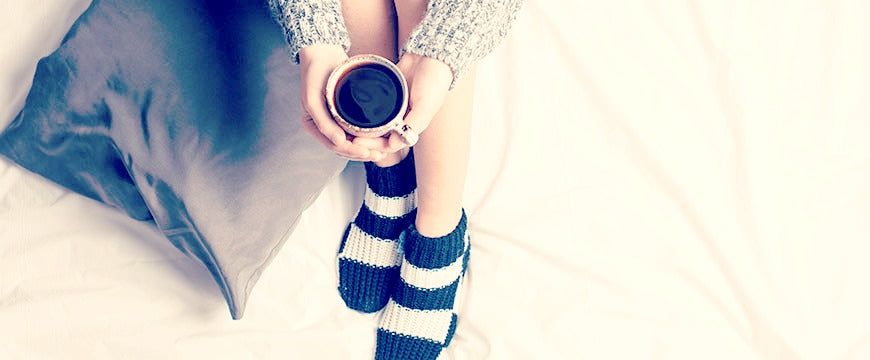
7 Scientific Methods for Falling Asleep Faster
Share
Having trouble sleeping? You’re not alone. According to the National Institute of Health, almost half of the adults in the United States suffer from varying levels of sleep deprivation. While some medical conditions or medications can cause lack of sleep, health experts have discovered that anxiety is the main culprit in most cases of adult insomnia. If you’re sick of missing out on quality sack time, try the following 7 science-backed techniques for increasing your chances of falling asleep faster and staying that way.
1) Force Yourself to Stay Awake
As strange as trying to stay awake when all you want to do is sleep sounds, reverse psychology has been proven to work for many issues, and sleep deprivation is one of them. A recent sleep study showed that insomniacs that were instructed to lay in bed with their eyes open and focus on remaining awake actually ended up falling asleep faster than the study participants that were instructed to simply fall asleep.
2) Refocus Your Mind for 10 Minutes
If you find yourself unable to sleep or getting back up after falling asleep, pushing the “reset button” in your brain can often be a great way to remind your body that it’s time for bed. Get up and take part in an activity that requires the use of your hands and mind, such as a jigsaw puzzle or coloring in an adult coloring book. Just be sure to avoid electronic devices, as they can have the opposite effect and actually keep you awake longer. The key here is to associate your bed with sleep, and only sleep. Your body and brain need to see your bed as a stimulus for sleep, and staying out of bed until you’re sleepy is great way to achieve that need.
3) Cover Your Clock
When you’re lying awake, tossing and turning, you most likely are also watching the minutes tick by and creating more anxiety about the sleep that you are losing. Remove time from the equation by turning your clock away from you or covering it with a hand towel.
4) Drop the Temperature
Your internal temperature is integral in regulating your biological body clock, and when you sleep, it drops several degrees. Sleep researchers at Harvard University believe that a cooler external temperature can actually quicken the process of falling asleep, and recommend a bedroom temperature of 60 to 67 degrees Fahrenheit.
5) Take a Warm Shower or Bath
Along this same train of thought, increasing your body temperature with warm water before bed can actually help to speed up the cooling of your internal temperature after you leave the shower or bathtub. Studies have shown that rapid body temperature decreases like those experienced after a warm shower or bath also helps to prep the body for sleep by slowing your metabolism rate. Bonus!
6) Wear Socks to Bed
Recent Swiss sleep studies have shown that warm feet and hands help with the internal heat loss that is critical in being able to fall asleep. Warmth in the extremities widens surface blood vessels and shifts heat from your core to your hands and feet, which also helps to encourage the production of melatonin – the hormone responsible for regulating sleep.
